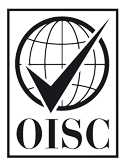

20 July 2017
A ‘Statement of Changes’ has been published today – early notice that a change to the Immigration Rules is coming. Usually that means further tightening of the system and more hoops to jump through, and we greet each new Statement of Changes with a sinking heart, but not this time. This time we’re cautiously pleased.
The changes will apply to all decisions made on or after 10 August 2017 on applications as the partner of a settled person, and they give caseworkers more discretion as to what sources of income can be used to show that the financial requirements are met. Sources of income unacceptable under the current rules, such as support from parents, remortgaging a property and prospective employment of both the applicant and their partner can now be considered.
So why are we just “cautiously pleased”, and not jumping for joy at this seeming easing of the financial requirements? Because it only applies if it is clear from the application that there are “exception circumstances” which could cause “unjustifiably harsh consequences” if the application is refused. As there is, of course, no explanation of what would be regarded as an exceptional circumstance, or what qualifies as an unjustifiably harsh consequence, it remains to be seen how much difference it will make to how applications are assessed. One thing is very clear, though – it is more important than ever before to put forward as full and comprehensive an application as possible, so that the caseworker has as much information as possible about your circumstances.















 07 November 2016
07 November 2016







